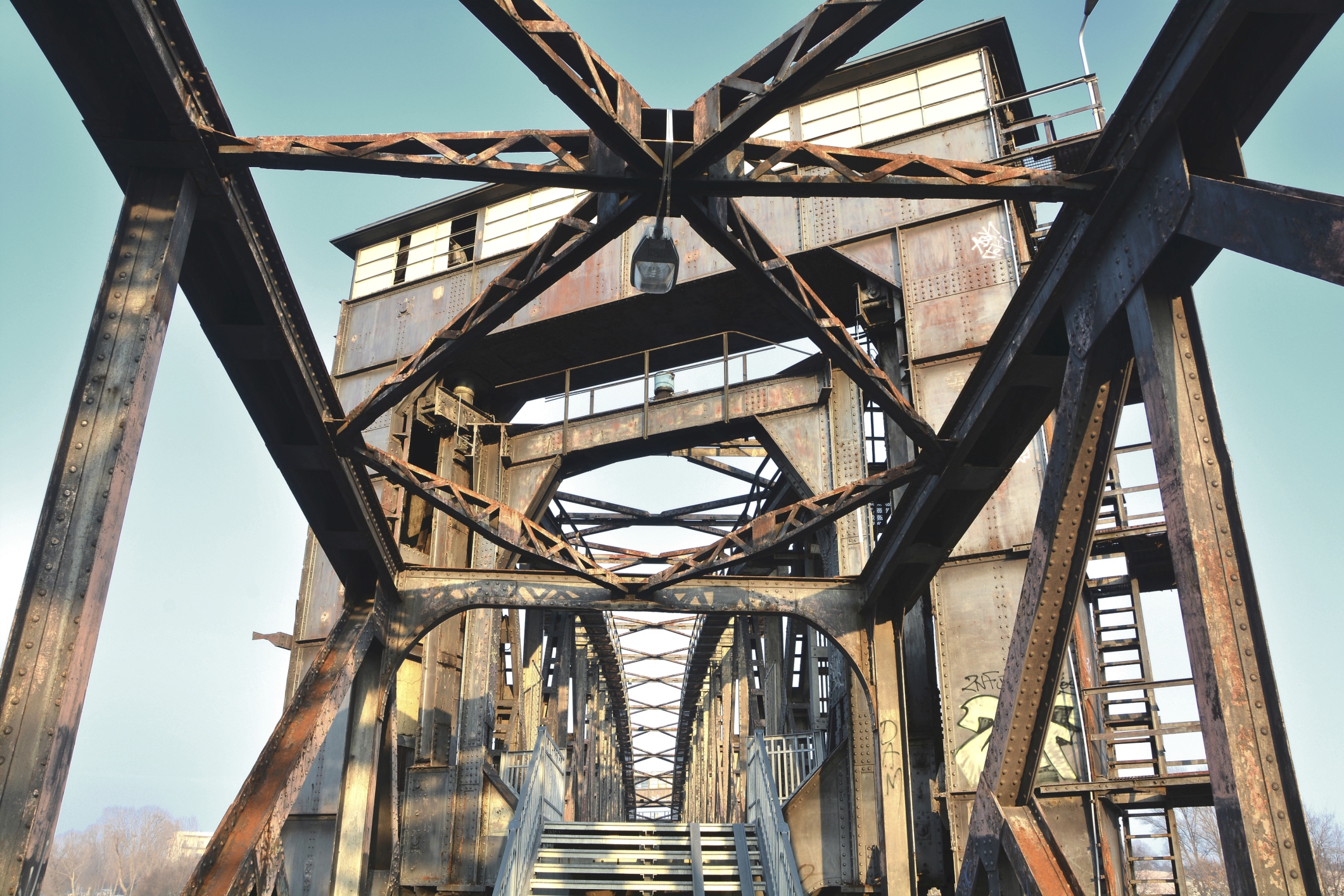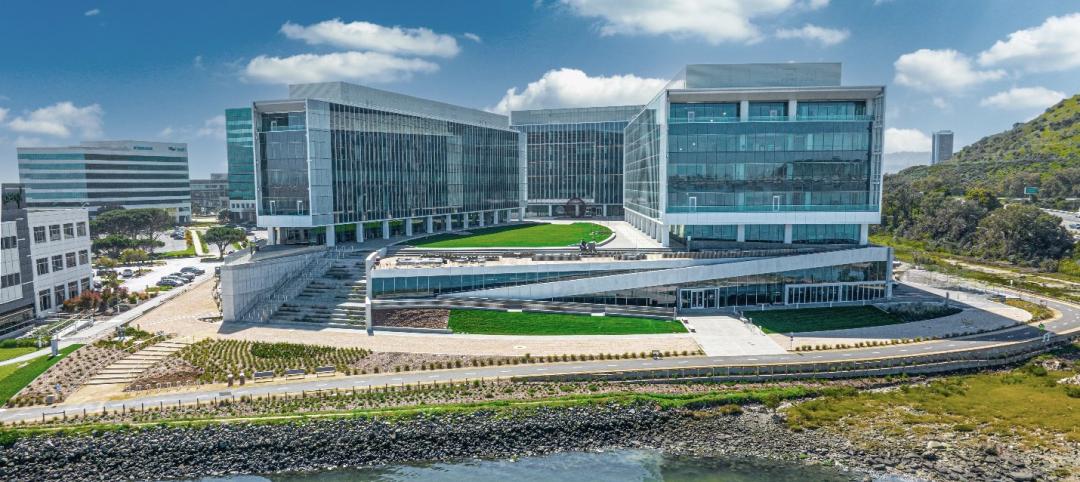At the National Press Club, a new report was released that outlines innovative new ways that the federal government, industry, and other stakeholders can work together to solve the crisis of the failing state of U.S. infrastructure.
Entitled "Making The Grade," the report is the result of experts from 45 different organizations, including corporations, professional organizations, think tanks, financial advisors, and academic institutions. It offers a six-point plan with fresh ideas to regain America's infrastructure leadership and revive the country’s global competitiveness.
The report's name is intended as a rallying cry in response to last year's quadrennial report card by the American Society of Civil Engineers (ASCE), which gave America's overall infrastructure a D+ grade. The ASCE estimates that US$3.6 trillion must be invested by 2020 to make critically needed upgrades and expansions of national infrastructure - and avoid trillions of dollars in lost business sales, exports, disposable income and GDP.
While much has been written and discussed about the problem, Making the Grade provides substantive recommendations and workable solutions to help meet today’s and tomorrow’s infrastructure needs.
The report's six-point recommendations include:
-
Making infrastructure a cabinet-level priority
-
Forming U.S. infrastructure regions
-
Establishing a national infrastructure bank
-
Selling "opportunity" bonds
-
Creating a national infrastructure index
-
Engaging the American people to build support for the importance of infrastructure policy
Collectively, these recommendations apply modern tools, technologies, approaches and fresh thinking to offer a new vision and path forward for the way U.S. infrastructure should be planned, financed, designed and built.
For the full report, please visit: http://autode.sk/MakingTheGrade
Commentary from Making The Grade Supporters
-
"Rebuilding America’s infrastructure should be our top economic priority: it’s essential to our national competitiveness, will help our businesses grow, and will create millions of much-needed middle class jobs. We absolutely cannot lose our global edge on infrastructure and the current trends are not headed in the right direction. As the Making the Grade report – composed by experts – makes clear, there are serious economic costs associated with our infrastructure gridlock. This is a domestic emergency. The good news is that there is strong bipartisan support for funding and financing infrastructure investment, provided we do it in a fiscally-responsible way. My bill, the Partnership to Build America Act, marries long-term goals from both parties: expanded infrastructure investment, tax reform, and more public-private partnerships. I’m proud to have my legislation highlighted in the report and I thank CG/LA and the other partners for raising awareness on this most vital issue.” -- John Delaney, Congressman, 6th District (D-Maryland)
-
"Rarely have I read a document in which the words more powerfully complement the purpose - this is a true blueprint for the work that will lead our country forward, creating real value now and for the next generation - by 'regaining' and 'sustaining' public infrastructure leadership." -- Norman Anderson, President and CEO, CG/LA Infrastructure
-
"Our infrastructure has fallen behind the rest of the world, threatening our economic vitality and even becoming a danger to our citizens. We can't rely on the same-old way of doing things. We need to bring a renewed spirit of innovation and purpose to this challenge. We believe the Making The Grade report provides the right framework, fresh ideas and infusion of energy needed to jumpstart this discussion and create action as a unified industry. We look forward to working closely between the private and public sector to start implementing our recommendations with all due haste." -- Terry D. Bennett, LS LPF MRICS ENV SP LEEDAP, Senior Industry Strategist for Infrastructure, Autodesk
-
“We not only must do better at building what we need, we need to do better in deciding what we need. The Making the Grade Report shows us a way forward in doing just that. This is not and cannot be just about us, about this generation and our needs. It must be about future generations and their options as well.” -- Bill Bertera, Executive Director, Institute for Sustainable Infrastructure
-
“We can’t solve today’s challenges, let alone tomorrow’s, with yesterday’s thinking. It’s well documented that our critical human infrastructure receives failing grades today and needs attention. Through a combination of new and integrated project delivery models and technical and financing innovation we have the ability to address the significant challenges we face. It will take true collaboration among government, industry, the private sector and the public, but investments in infrastructure will lead to strong returns. This work has been started with the Making the Grade report, and it must continue.” -- Ralph Eberts, Executive Vice President, Managing Director of Water, Americas, Black & Veatch
-
"The Making the Grade Report represents the forward looking thinking of nearly 50 companies and organizations. The six-point plan to support rebuilding America's infrastructure provides the necessary direction forward, showing the country how we can dramatically increase our investment through the kind of private and public initiatives that benefit all stakeholders." -- Andrés Gluski, President and CEO, AES Corporation
-
"Innovation in infrastructure requires long term effort and attention to the capabilities that must be developed among a coalition of stakeholders to achieve that goal. US infrastructure in particular is a 'wicked problem' - complex and open-ended - that requires a guiding framework and a high level of collaboration and originality for its resolution.” -- John Kao, fmr Harvard Business School Professor and Chairman, Institute for Large Scale Innovation
-
“21st century success depends on 21st century infrastructure. Making the Grade outlines a thoughtful, balanced and timely program for addressing this critical need.” -- Dr. James A. Moore, SVP/Director National Community Planning & Urban Design, HDR
-
“Infrastructure systems are the backbone of our economy and a critical part of our daily lives. While it’s tempting to assume that we should just address the largest funding gap first, it’s important to remember that all of our infrastructure is linked and each sector has a significant role to play. We need leadership from federal, state and local levels of government who will communicate the urgency of revitalizing our nation’s infrastructure, craft innovative solutions and make the investments the system needs so that the United States is competitive on a global level. Industry efforts like the Making the Grade Symposium and its report help head us in this direction.” -- Patrick Natale, P.E., F.ASCE, FASAE, CAE, Exec Director of American Society of Civil Engineers
Related Stories
Sustainability | Mar 21, 2024
World’s first TRUE-certified building project completed in California
GENESIS Marina, an expansive laboratory and office campus in Brisbane, Calif., is the world’s first Total Resource Use and Efficiency (TRUE)-certified construction endeavor. The certification recognizes projects that achieve outstanding levels of resource efficiency through waste reduction, reuse, and recycling practices.
Office Buildings | Mar 21, 2024
Corporate carbon reduction pledges will have big impact on office market
Corporate carbon reduction commitments will have a significant impact on office leasing over the next few years. Businesses that have pledged to reduce their organization’s impact on climate change must ensure their next lease allows them to show material progress on their goals, according to a report by JLL.
Adaptive Reuse | Mar 21, 2024
Massachusetts launches program to spur office-to-residential conversions statewide
Massachusetts Gov. Maura Healey recently launched a program to help cities across the state identify underused office buildings that are best suited for residential conversions.
Legislation | Mar 21, 2024
Bill would mandate solar panels on public buildings in New York City
A recently introduced bill in the New York City Council would mandate solar panel installations on the roofs of all city-owned buildings. The legislation would require 100 MW of solar photovoltaic systems be installed on public buildings by the end of 2025.
Office Buildings | Mar 21, 2024
BOMA updates floor measurement standard for office buildings
The Building Owners and Managers Association (BOMA) International has released its latest floor measurement standard for office buildings, BOMA 2024 for Office Buildings – ANSI/BOMA Z65.1-2024.
Healthcare Facilities | Mar 18, 2024
A modular construction solution to the mental healthcare crisis
Maria Ionescu, Senior Medical Planner, Stantec, shares a tested solution for the overburdened emergency department: Modular hub-and-spoke design.
Codes and Standards | Mar 18, 2024
New urban stormwater policies treat rainwater as a resource
U.S. cities are revamping how they handle stormwater to reduce flooding and capture rainfall and recharge aquifers. New policies reflect a change in mindset from treating stormwater as a nuisance to be quickly diverted away to capturing it as a resource.
Plumbing | Mar 18, 2024
EPA to revise criteria for WaterSense faucets and faucet accessories
The U.S. Environmental Protection Agency (EPA) plans to revise its criteria for faucets and faucet accessories to earn the WaterSense label. The specification launched in 2007; since then, most faucets now sold in the U.S. meet or exceed the current WaterSense maximum flow rate of 1.5 gallons per minute (gpm).
MFPRO+ New Projects | Mar 18, 2024
Luxury apartments in New York restore and renovate a century-old residential building
COOKFOX Architects has completed a luxury apartment building at 378 West End Avenue in New York City. The project restored and renovated the original residence built in 1915, while extending a new structure east on West 78th Street.

















